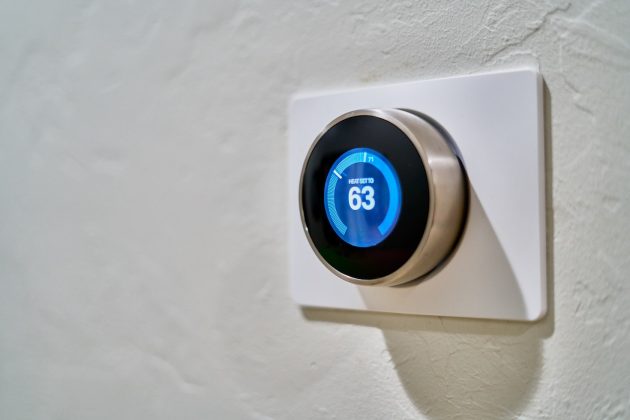
Photo by Dan LeFebvre on Unsplash
With the increasing digitalization around the world, appliances are getting smarter. From cameras and door locks to speakers and lighting, almost all household devices have become automated. The interaction of these appliances ultimately makes up what is known as a smart home.
The concept of a smart home is relatively new and is not yet widely adopted. Nevertheless, many benefits can be derived from making your home smart. Here, we will consider what constitutes a smart home, how it works, and its many advantages.
What is a smart home?
A smart home is a residence where various appliances/devices are connected over the internet to enable remote control and monitoring through a smartphone or any other device connected to the network. Some of the features that can be remotely controlled in a smart home include temperature, lighting, home access, sound, and entertainment systems.
A smart home setup typically results in better security, convenience, and energy efficiency for the homeowner. That’s partly because of the self-learning quality of most smart home appliances. Essentially, these appliances can observe the homeowner’s schedule and habits, allowing them to adapt as appropriate without much human input.
It’s worth noting that these homes largely depend on the Internet of Things (IoT) technology which allows various devices to connect to a single ecosystem, enabling them to communicate and operate together.
Benefits of a smart home: how does it save you money
Here are some of the ways you might find a smart home valuable:
Security: One of the main benefits of a smart home is the additional security it provides. It’s particularly true for devices like smart locks, motion detectors, and smart cameras. These devices allow you to monitor your home in real-time, even when you are on the other side of the globe. Many smart home devices also provide security alerts that enable you to contact the authorities in case of any suspicious activity around your home.
Having better security for your home can save you significant financial loss, especially if you live in areas where break-ins are frequent. With smart-home tech, you stand a better chance of preventing the theft of valuable items within your home.
Energy-Efficiency: A smart home significantly improves energy efficiency through automation. A good demonstration of this is a smart thermostat that can adapt the cooling and heating of your home precisely to your schedule. This way, you are not wasting energy on cooling or heating when you do not require it. The smart lighting system switches off all the lights as soon as you leave a room.
Another smart-home tech that saves you energy is a smart irrigation system that waters your lawn at appropriate times without wasting water. No doubt, this improvement in your energy efficiency translates to significant cost savings.
Considerations for setting up a smart home
Connectivity type
There are multiple ways to set up a smart home. On the one hand, you can leverage internet-connected devices via Wi-Fi that can typically be controlled through apps on your smartphone. Conversely, you can have devices connected via generic communication protocols like Zigbee and Z-wave. These devices all connect to a hub that gives you control from one place, as opposed to using separate apps for each appliance.
Smart devices
To select the ideal smart devices for your setup, you should consider what your needs are and what aspects of your home you want to automate. There are several interesting devices you can consider for your home, and you do not need every smart device out there.
Compatibility
One challenge you may face when setting up a smart home is ensuring all your devices work well together. Since smart home technology is still nascent, there are multiple standards and systems. Several Devices may not be compatible with a specific system. It becomes a problem when your devices cannot communicate with one another. So it’s crucial to ensure the compatibility of all these appliances.
Cost
A smart home typically requires the purchase of Wi-Fi and several devices. These can quickly add up to a significant amount of money. You can minimize the expenditure of setting up your smart home by purchasing only the most essential devices. If you still don’t have the budget to make the required investment, there are fast and easy loans online that you can leverage to finance your smart home project.
Taking these steps can also help you in setting up a smart home.
Final thoughts
Smart homes, as exciting as they may be, are yet to attain mainstream adoption due to their perceived complexity and cost. However, as we have demonstrated in this article, a smart home can be a worthwhile investment as it has the potential to not only make your life easier but also save you money.



